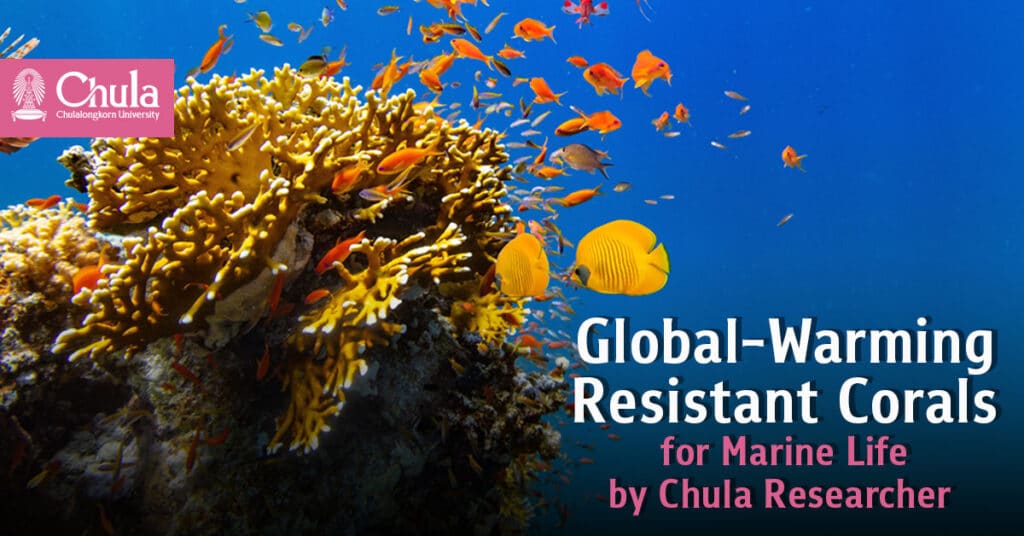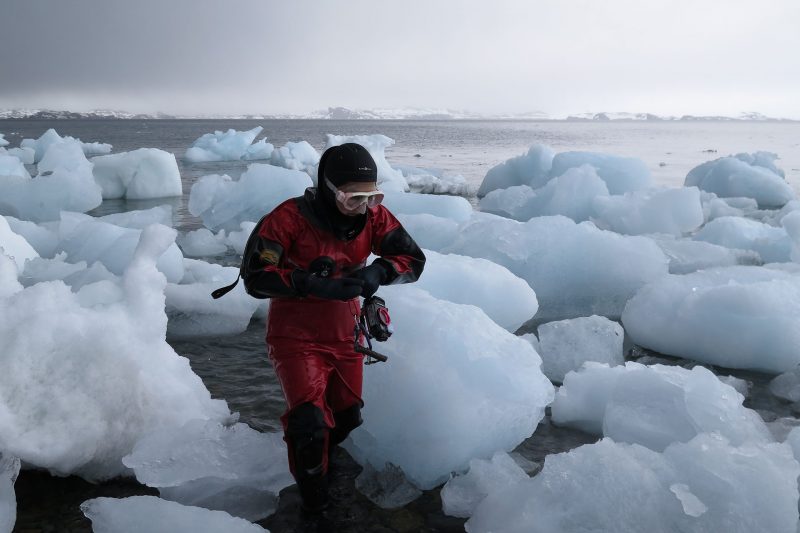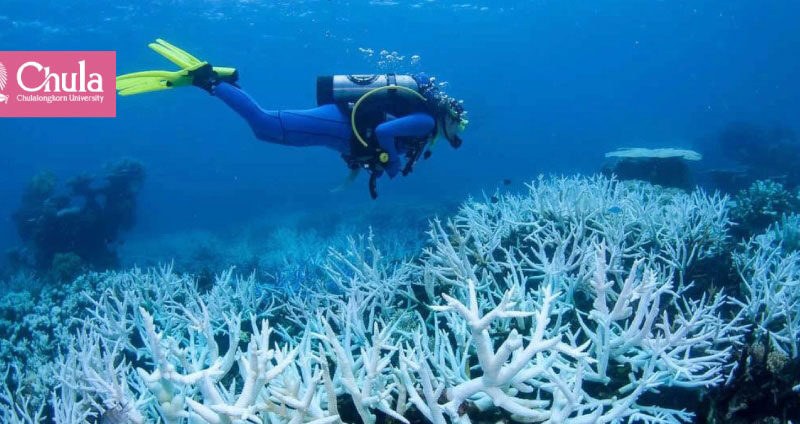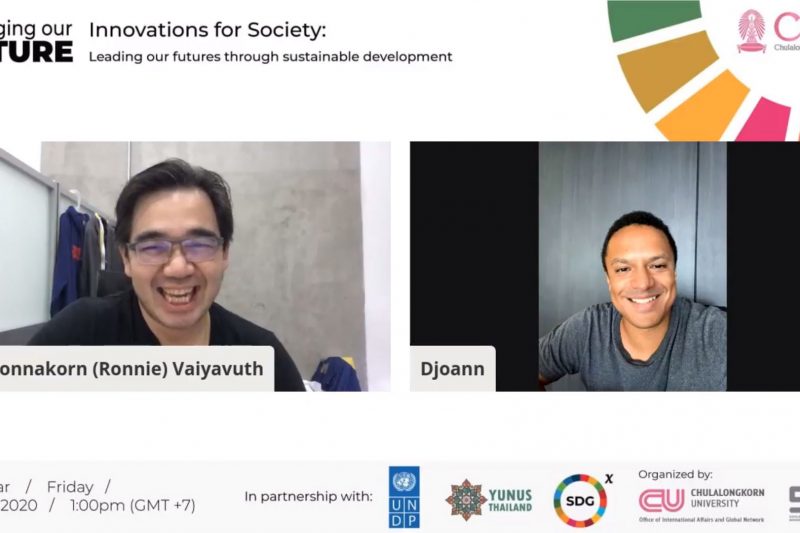Reviving Coral Reefs for a Climate-Resilient Future: Chulalongkorn University’s Global Environmental Leadership
“Chulalongkorn University has established itself as a regional leader in environmental stewardship through pioneering coral reef restoration and climate resilience initiatives led by Professor Dr. Suchana Chavanich and Professor Dr. Voranop Viyakarn. By advancing sexual propagation and cryopreservation of coral gametes, alongside microbial enhancement, the university has created innovative, science-based solutions that expand biodiversity, improve coral adaptability, and ensure long-term reef survival. These efforts position Thailand among the first groups in Asia to integrate cryopreservation into reef restoration, providing a future genetic bank for future generations.
Our leadership extends beyond science. Collaborations with government agencies, fishers, youth, and international partners (UNESCO/IOC-WESTPAC, Reef Check, JSPS, JICA-SATREPS) have transformed degraded reefs and linked ecosystem recovery with community resilience. Chulalongkorn also contributes nationally on marine plastics, microplastics, and polar climate change, bridging science and policy. This holistic model exemplifies how higher education can lead environmental transformation for a sustainable future.”
Chulalongkorn University has emerged as a regional leader in environmental stewardship through pioneering coral reef restoration and climate resilience initiatives led by Professor Dr. Suchana Chavanich and Prof. Dr. Voranop Viyakarn. When climate change poses unprecedented threats to marine biodiversity and coastal livelihoods, our institution has demonstrated how science-driven innovation, coupled with community engagement, can deliver transformative and scalable solutions.
Innovative Science-Based Solutions
Our coral restoration model emphasizes biodiversity as the foundation of resilience. By advancing sexual propagation and cryopreservation techniques for coral gametes, Chulalongkorn University has introduced methods that expand genetic diversity, improve adaptability, and ensure long-term survival of corals under warming seas. This work positions Thailand among the first nations in Asia to integrate cryopreservation into reef restoration, providing a genetic bank for future generations. Complementary research on microbial associations has further strengthened coral tolerance to disease and heat stress, placing our university at the cutting edge of restoration science.
Leadership with Tangible Impact
Chulalongkorn University’s environmental leadership has produced measurable outcomes:
- Restoration of degraded reefs across the Gulf of Thailand through large-scale transplantation of resilient coral recruits.
- Partnerships with government agencies, local fishers, and youth groups in Samaesan community, creating a model of co-management that links ecosystem recovery with food security.
- Recognition of our coral conservation program as a flagship project under the Royal Initiative, aligning with national policy and strengthening Thailand’s contribution to the UN Decade of Ocean Science.
- International collaborations with UNESCO/IOC- WESTPAC, Reef Check, JSPS, JICA-SATREPS, and leading universities, positioning Chulalongkorn University as a hub for regional training and technology transfer.
Creative Management and Institutional Commitment
Our approach transcends traditional academic boundaries by embedding sustainability into the university’s mission. We established living laboratories for coral restoration, integrating research, teaching, and outreach. Creative management practices such as open access baby coral hatchery for communities, citizen science programs (ex. Reef Check Thailand), and school outreach campaigns, which demonstrate how higher education institutions can anticipate global environmental change while engaging stakeholders across scales.
Broader Environmental Leadership
Beyond coral reefs, Chulalongkorn University has advanced Thailand’s national dialogue on marine plastic pollution, microplastic impacts, and polar climate change. By bridging science and policy, our researchers serve on intergovernmental committees and advise on national action plans. This reflects a holistic model of environmental leadership that connects ecosystems, communities, and governance.
Raising the Bar for Higher Education
The university’s coral restoration and environmental initiatives have improved on standard practices in the sector by:
- Establishing reproducible, science-based models that are now adopted by other universities, governmental institutes, and NGOs.
- Creating inclusive training frameworks that empower women and youth in marine science.
- Demonstrating that cutting-edge scientific research can directly benefit communities and contribute to national climate adaptation strategies.
Through innovation, impact, and global collaboration, Chulalongkorn University exemplifies how higher education can lead environmental transformation. Our coral restoration model not only revives ecosystems but also inspires a generation of leaders committed to securing a sustainable future for Asia and the world.
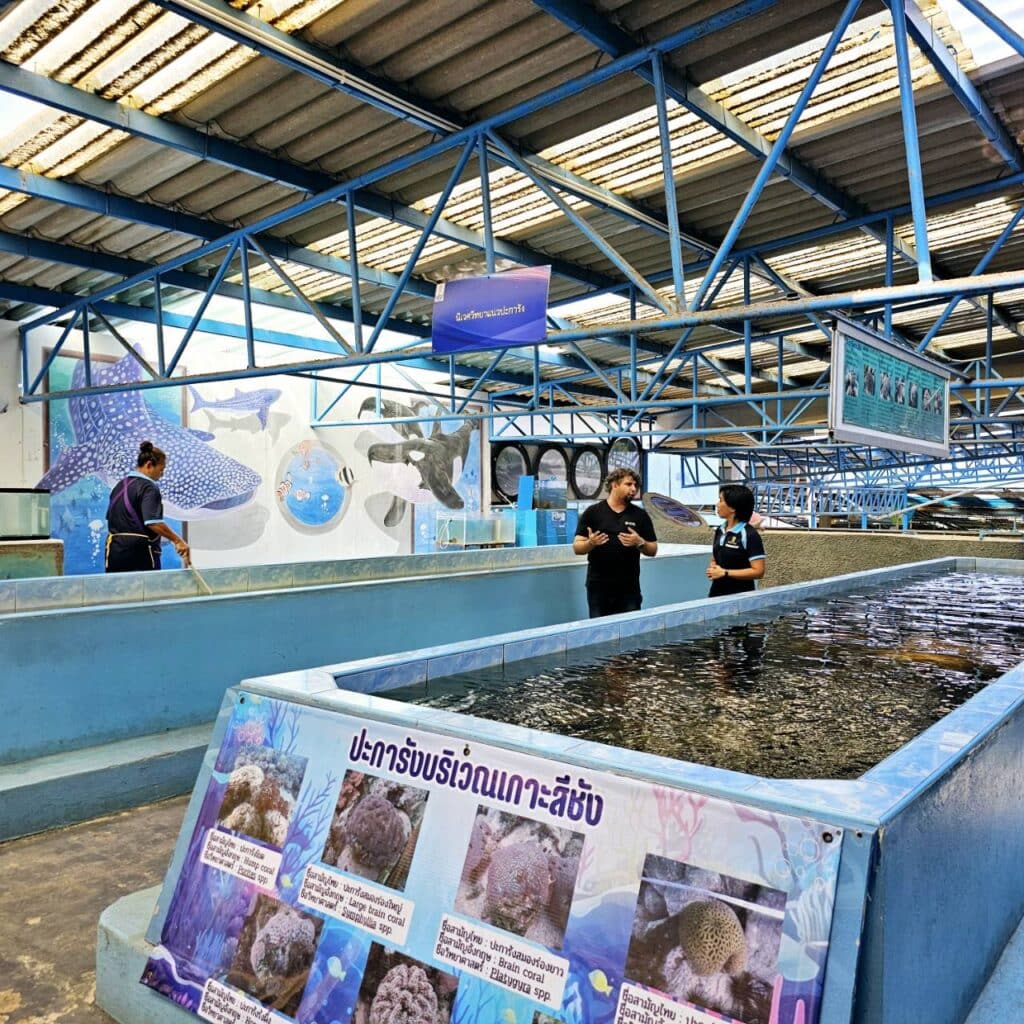
By
- Faculty of Science, Chulalongkorn University
- Aquatic Resources Research Institute, Chulalongkorn University
Others
Taking Research to Extremes
Marine biologist Suchana Chavanich’s curiosity takes her to the fascinating but highly challenging Antarctic

